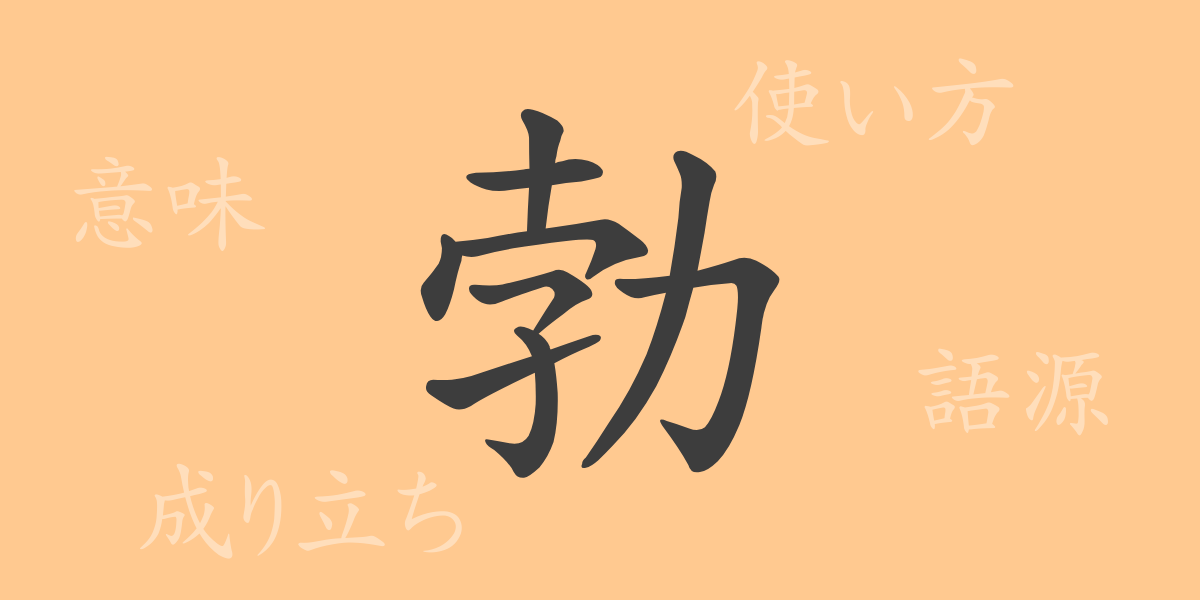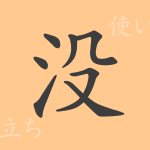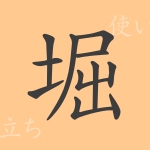In the Japanese language, there are numerous kanji (かんじ) characters, each with its own unique history and meaning. Among the commonly used kanji, there are those frequently encountered in daily life and those used in specialized contexts. This time, we spotlight the kanji “勃” (ぼつ, bōtsu), which, though not very common, is noteworthy for its strength and dynamism. We will delve into its origin, meaning, usage, and how it is used in Japanese.
Origin of 勃 (ぼつ, bōtsu)
The kanji “勃” (ぼつ, bōtsu) is a character that originated in ancient China, symbolizing strength and sudden movement. This kanji is derived from ancient pictographs and originally depicted something suddenly appearing or rapidly developing. Over time, this character has come to possess various meanings and nuances, but its fundamental image is rooted in the power and activity suggested by the ancient pictographs.
Meaning and Usage of 勃 (ぼつ, bōtsu)
The kanji “勃” (ぼつ, bōtsu) carries meanings such as “sudden outbreak” (勃発, ぼっぱつ, boppatsu) and “sudden rise” (勃興, ぼっこう, bōkkō), indicating something starting suddenly or becoming active. Specifically, it is used to express the sudden occurrence of conflicts or battles, or the rapid development of economies or cultures. This kanji suggests abrupt changes or the beginning of new phases, thus creating a strong impression in language.
Reading, Stroke Count, and Radical of 勃 (ぼつ, bōtsu)
The basic information about the kanji “勃” (ぼつ, bōtsu) is as follows:
- Reading: On’yomi (音読み) is “ボツ” (bōtsu), Kun’yomi (訓読み) is “おこ.る” (oko.ru) and “にわかに” (niwaka ni)
- Stroke count: 9 strokes
- Radical: 力 (ちから, chikara)
Idioms, Proverbs, and Phrases Using 勃 (ぼつ, bōtsu)
Idioms, proverbs, and phrases containing “勃” (ぼつ, bōtsu) often describe sudden occurrences. Here are some examples:
- 勃発 (ぼっぱつ, boppatsu): The sudden outbreak of conflicts or battles.
- 勃興 (ぼっこう, bōkkō): Something becoming suddenly prosperous.
- 勃然 (ぼつぜん, bōtsuzen): The sudden appearance of anger or excitement.
Summary of 勃 (ぼつ, bōtsu)
The kanji “勃” (ぼつ, bōtsu) imparts a dynamic impression in writing with its intense meaning and unique nuance of capturing the moment something new begins. Although not frequently used as a common kanji in Japanese, it can be seen in specific contexts and idioms. Through this exploration, we hope that “勃” (ぼつ, bōtsu) has become a more familiar character to our readers, deepening their understanding of its usage.
“`

























